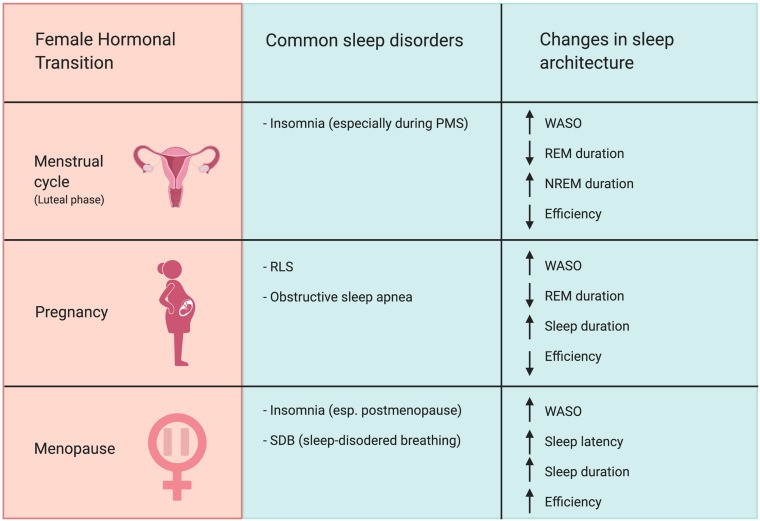Sleep is essential for health and well-being, yet women consistently report poorer sleep quality than men. This difference raises a crucial question: why do females need more sleep than males? Hormones play a significant role in this disparity. This article explores the complex interplay between female sex hormones and sleep, examining how hormonal fluctuations throughout a woman’s life contribute to sleep disturbances and differences in sleep architecture compared to men.
The Hormonal Influence on Female Sleep
Women experience unique hormonal shifts during puberty, menstruation, pregnancy, and menopause. These fluctuations significantly impact sleep patterns and contribute to a higher prevalence of sleep disorders in females.
The Menstrual Cycle and Sleep
The menstrual cycle, with its cyclical changes in estrogen and progesterone, influences sleep architecture. The luteal phase, characterized by elevated progesterone, is often associated with increased sleep onset latency, more nighttime awakenings, and reduced sleep efficiency. Fluctuations in body temperature due to hormonal changes may also disrupt sleep during this phase.
Pregnancy and Postpartum Sleep Disruptions
Pregnancy brings dramatic hormonal changes and significant sleep challenges. Growing abdominal size, fetal movement, and hormonal surges contribute to frequent nighttime awakenings, restless sleep, and daytime sleepiness. Postpartum, hormonal adjustments and the demands of newborn care further exacerbate sleep disturbances.
Menopause and Sleep
The menopausal transition, marked by declining estrogen levels, is linked to a higher incidence of insomnia and sleep disruptions. Hot flashes and night sweats, common symptoms of menopause, frequently interrupt sleep, leading to reduced sleep quality and daytime fatigue. Hormone therapy can sometimes alleviate these symptoms and improve sleep.
How Hormones Affect Sleep-Wake Brain Circuits
Ovarian hormones, primarily estrogen and progesterone, directly influence brain regions that regulate sleep and wakefulness.
Impact on Key Brain Areas
Estrogen modulates the activity of sleep-promoting neurons in the ventrolateral preoptic area (VLPO), potentially reducing sleep drive. It also influences neurotransmitter systems involved in arousal, such as the hypocretin system in the lateral hypothalamus, the histaminergic system in the tuberomammillary nucleus (TMN), and the noradrenergic system in the locus coeruleus (LC). These hormonal effects on arousal systems may contribute to increased wakefulness and sleep fragmentation in women.
Circadian Rhythm and Stress Response
Estrogen also impacts the suprachiasmatic nucleus (SCN), the brain’s master clock, influencing circadian rhythms that regulate sleep-wake cycles. Furthermore, hormonal influences on the stress response system, specifically the hypothalamic-pituitary-adrenal (HPA) axis, can contribute to sleep disruptions in women, as they tend to have a more reactive stress response than men.
Future Research and Implications
While the link between female sex hormones and sleep is clear, further research is crucial to fully understand the intricate mechanisms involved. Investigating how hormonal fluctuations affect specific neural pathways and neurotransmitter systems will provide a more comprehensive understanding of sleep disturbances in women. This knowledge can lead to the development of targeted therapies and interventions to improve sleep health and overall well-being for women. It is important to acknowledge that the vast majority of research on this topic has focused on cisgender women, and future studies should include transgender and non-binary individuals to gain a more inclusive understanding of hormonal influences on sleep.
Conclusion
The question of why do females need more sleep than males? Hormones, specifically estrogen and progesterone, are key factors influencing sleep architecture and contributing to increased sleep problems in women. Understanding the complex interplay between female hormones and sleep is essential for addressing sleep disparities and improving women’s health. Future research focused on the neurobiological mechanisms underlying these hormonal effects promises to pave the way for more effective treatments and interventions for sleep disorders in women.
